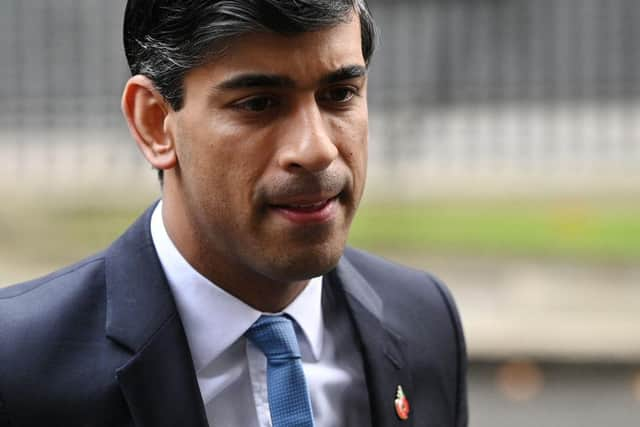Public sector pay freeze: will police, teachers and NHS staff be affected - and what are the government's plans?
Rishi Sunak has confirmed a public sector pay pause next year in the government looks to balance the books in the wake of the coronavirus outbreak.
Delivering his spending review, Mr Sunak detailed the expected freeze on public sector pay in an effort to strike a fair balance with workers in the private sector.
Advertisement
Hide AdAdvertisement
Hide AdThe chancellor said the government "cannot justify significant across the board pay rise for public sector workers" in his address to MPs on Wednesday 25 November.


Yet he promised the majority of public sector workers will see their pay increase due to scheduled pay rises for frontline NHS doctors and nurses exempt from the freeze.
Around 2.1 million public sector workers who earn under the median £24,000 per year will even see an increase of £250 in their annual pay packets in 2021.
Mr Sunak’s announcement comes after weeks of speculation – which had seen a figure of nearly five million rumoured to be included in the pay freeze.
Advertisement
Hide AdAdvertisement
Hide AdThe pandemic has seen government spending rise in an effort to save lives, protect jobs and combat Covid - with hope of an effective vaccine before Christmas.
But the economic fallout is yet to come as Mr Sunak looks to balance the books.
Which jobs are affected?
Public sector jobs cover a wide variety of roles and it appears some will be affected while others will be exempt.
Teachers, police and armed forces staff will be affected under Mr Sunak’s plans.
Are any jobs be exempt?
Advertisement
Hide AdAdvertisement
Hide AdPublic sector jobs likely to be exempt from any potential limits on pay include frontline NHS doctors and nurses in recognition of their work during the coronavirus pandemic.
Why is the government looking to make savings?
Mr Sunak is looking at ways to offset some of the government’s expenditure in its response to the coronavirus pandemic.
The Office for Budget Responsibility, the government’s economic forecaster, is expected to publish figures next week showing a “surge in borrowing to more than £400bn this year,” the Guardian reports.
Speaking with Sky News’ Kay Burley, health secretary Matt Hancock refused to comment on "speculation" but added: "The pandemic has had a very serious impact on people's health but also on the economy.”
How much savings could have been made?
Advertisement
Hide AdAdvertisement
Hide AdThe Centre for Policy Studies (CPS), a centre-right think tank, revealed savings in excess of £23 billion could be made with a three-year pay freeze across the public sector.
It predicted savings of £15.3bn over three years if the NHS was excluded.
Savings of £11.7bn could be made with an annual 1% pay cap over three years, or savings of £7.7bn if healthcare workers were exempt from the cap.
The CPS said private sector workers had suffered far more from the economic impact of the disease and that measures were needed to ensure the labour market was not unfairly weighted towards the public sector.
Advertisement
Hide AdAdvertisement
Hide Ad“The economic impact of the Covid-19 pandemic has been severe but the pain has not been shared equally,” said CPS director Robert Colvile.
“Healthcare workers aside, it is difficult to justify generous pay rises in the public sector when private sector wages are actually falling.
“At the same time, there is a need to control public spending and reduce the structural deficit which the pandemic is likely to have opened up.”
What had the trade unions said leading up to the spending review?
Advertisement
Hide AdAdvertisement
Hide AdThe Unite trade union said it appeared the CPS was being used as an “outrider” ahead of Mr Sunak’s statement.
Assistant general secretary Gail Cartmail said: “The CPS analysis is insulting to those public sector workers that have underpinned the fabric of society during this continuing pandemic.
“In the spring, the Prime Minister was praising NHS staff for saving his life.
“Now, in the autumn, he needs to ensure that his Chancellor turns those warm words into hard cash for those that ensure the efficient running of the NHS, schools and colleges, and the myriad of services provided on a daily basis by local councils.”
Advertisement
Hide AdAdvertisement
Hide AdUnison general secretary Dave Prentis said a new pay cap would be a “cruel body blow” to NHS staff not on the frontline.
“Key workers across all public services remain at the heart of the fight against Covid,” he said.
“The Government must do what’s right next week and announce the wage rise all staff have more than earned.
“Anything less risks destroying morale when the entire country is counting on them.”
